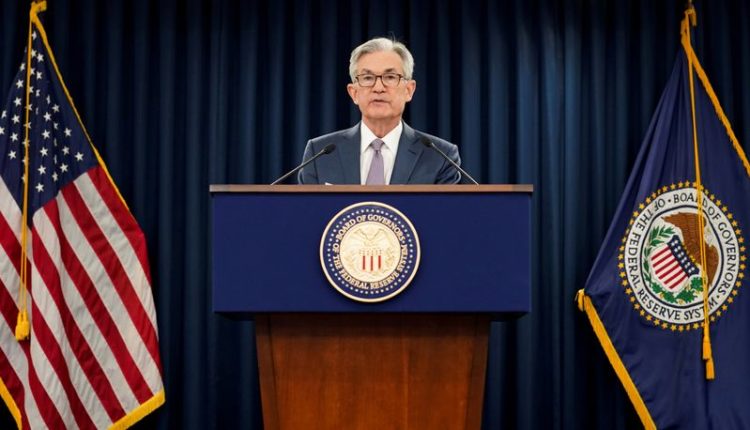Fed’s Powell to speak as focus turns from crisis to bond-buying
By Howard Schneider
WASHINGTON (Reuters) – Federal Reserve Chair Jerome Powell will speak in a public webcast on Friday, with the details of the U.S. central bank’s coronavirus-era programs nearly complete and attention turning to the next phase of its response: a likely restart of large-scale bond-buying and promises about how long it might continue.
The Fed has been buying government bonds and mortgage-backed securities to counter the economic fallout from the pandemic, but in relatively modest quantities compared with what might be needed to hold down longer-term interest rates in coming months and boost the recovery with sustained cheap borrowing costs.
Global investors have been doing the Fed’s work so far, bidding down U.S. Treasury yields to record-low levels – the yield on the benchmark 10-year note has been below 1.0% since late March. But between a possible economic rebound and the trillions in extra debt the Treasury is in the midst of issuing, pressure may build in the other direction, and market analysts are pushing for guidance.
“The reopening process … now seems to be moving quite fast, and quite likely faster than the Fed anticipated,” Krishna Guha, vice chairman of Evercore ISI and a former New York Fed official, said in an analysis on Thursday. He argued the central bank should not wait to begin setting expectations about its longer-term plans since households and businesses may be setting theirs.
The Fed could best foster a recovery and support needed government spending “with strong commitments to maintain easy monetary conditions and guard against an unwanted increase” in longer-term interest rates, Guha said.
The discussion is underway, according to the minutes of the Fed’s April 28-29 policy meeting. Still, officials see no rush to commit themselves until it is clearer whether the rebound will be fast or slow, how quickly unemployment falls, and how interest rates behave – with $3 trillion in bonds being issued in the April-to-June period alone to fund pandemic-relief programs.
Powell, a graduate of Princeton University, will be interviewed on Friday by Alan Blinder, an economics professor at the Ivy League college and a former Fed vice chair who wonders if global demand for U.S. debt may finally hit a limit.
The pandemic “is going to lead to a test of the notion … that the demand for U.S. Treasury debt is infinite,” Blinder said last month. “We haven’t come anywhere close to testing the limits … But there’s going to be a lot more to be sold.”
That could raise challenges similar to those faced by the Bank of Japan and the European Central Bank – how far to go in buying bonds to keep interest rates low not just for consumers or companies, but for governments financing crisis programs.
It may not be avoidable, said William English, a professor at the Yale School of Management and a former head of the Fed’s monetary affairs division.
“I don’t expect explicit fiscal-monetary cooperation unless the situation turns out to be extraordinarily bad,” English said in a webcast briefing organized by Cornerstone Macro. Nonetheless, a commitment like the Bank of Japan’s to keep long-term government rates low “should allow additional fiscal policy, and something like that sort of communication by the Fed is not unlikely.”

